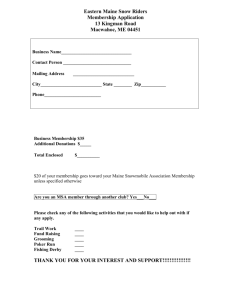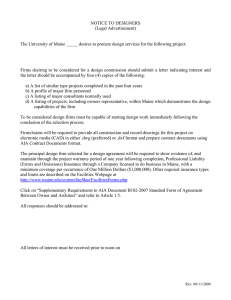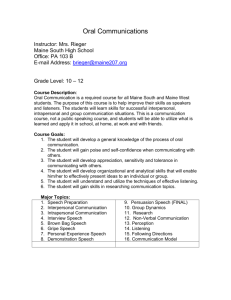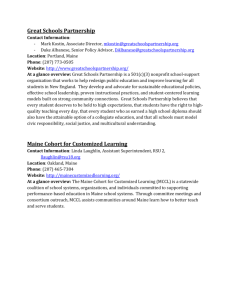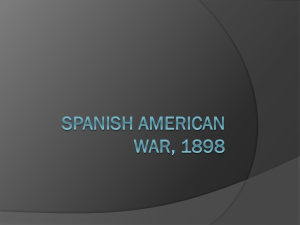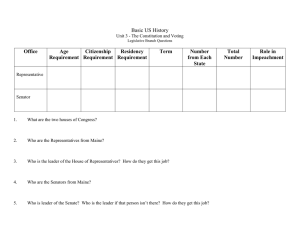Innovation Engineering - DigitalCommons@UMaine
advertisement
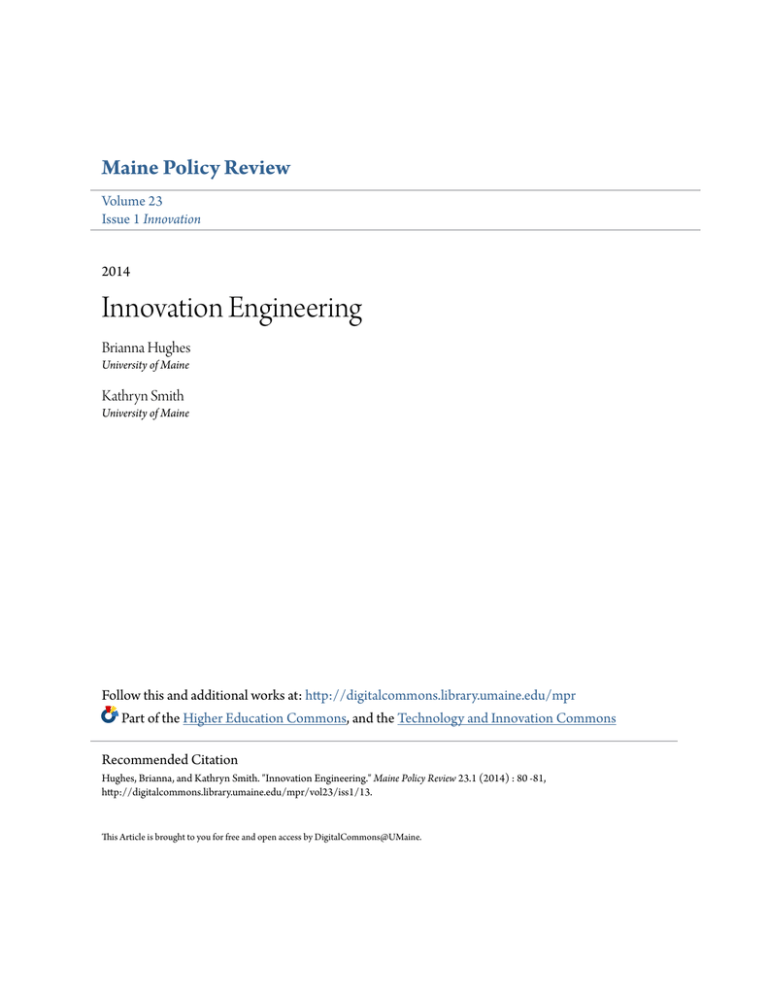
Maine Policy Review Volume 23 Issue 1 Innovation 2014 Innovation Engineering Brianna Hughes University of Maine Kathryn Smith University of Maine Follow this and additional works at: http://digitalcommons.library.umaine.edu/mpr Part of the Higher Education Commons, and the Technology and Innovation Commons Recommended Citation Hughes, Brianna, and Kathryn Smith. "Innovation Engineering." Maine Policy Review 23.1 (2014) : 80 -81, http://digitalcommons.library.umaine.edu/mpr/vol23/iss1/13. This Article is brought to you for free and open access by DigitalCommons@UMaine. STUDENT PERSPECTIVE Innovation Engineering BRIANNA HUGHES he three Innovation Engineering (IE) courses I took for my graduate certificate in Innovation Engineering were without doubt the most valuable courses I have taken at the University of Maine. Knowing how difficult and variable the job market is, I wanted to diversify my skill set as much as possible before I graduated with my Ph.D. in food science (expected in May 2014). Adaptability and versatility are crucial to success in any field, and everything I had heard about IE suggested it would be tremendously beneficial to me. My classmates were from a variety of other disciplines, but we worked together as colleagues. Instead of typical classes where people tend to group with like-minded people, IE challenged us to see different ways of thinking as an advantage. Over the first couple of weeks, there was a change from initial resistance to group work to excitement, and we were encouraged to form a new group each week. While the tools and techniques seemed silly at first, they were effective at forcing us out of our comfort zones and into an out-of-the-box, nothing-is-off-the-table mindset. It is amazing what a group is capable of when everyone is uninhibited and barriers to communication have been lifted. Innovation is a term used almost ubiquitously now, but having a systematic method to train people to innovate in a way that increases speed and decreases risk could not be more relevant today. I find that I am applying IE principles not only to my field, but also to my daily life. I think differently now. IE is not taught like other classes; it is a method that is learned and practiced over and over again. The exhilaration of discovery carries forward long after the lesson and helps students to realize that they are capable of making opportunities for themselves. Finishing the IE graduate certificate was a transformative experience for me, and I feel better prepared for the future because of it. - Brianna Hughes, of New Gloucester, Maine, is a Ph.D. Candidate in Food and Nutrition Sciences and a Blue Sky Graduate Fellow. Her Innovation Engineering project, “Maine: Hungry for Innovation,” focused on strengthening the connection between the School of Food and Agriculture and the Maine food industry. She plans to pursue a career in research and development in the food industry. Kate Crabtree Photography T KATHRYN SMITH I recently graduated from the University of Maine with a major in business management and a minor in Innovation Engineering and am currently finishing up work to get my IE Black Belt. The courses and internships I have had throughout the program have been some of the most valuable learning experiences of my entire undergraduate career at UMaine. Innovation Engineering courses focused on helping me to develop a toolbox of work- related skills that I will be able to use after graduation. I was able to test these skills with the internships that I had. The first internship was awarded through the Innovate for Maine program where I was paired with Bourgeois Guitars in Lewiston. 80 MAINE POLICY REVIEW Winter/Spring 2014 While there, I used my IE skills to help solve real problems within the business. I got to design and build a UV curing booth, which cut the month-long cure time in half, an amazing learning experience that gave me realworld hands-on experience outside the classroom. I am more prepared for what lies ahead in my professional life because of this experience. My second IE internship is with the 610 Project through the Sustainable Solutions Initiative. I am finishing up work with a Ph.D. student who has been working with a shellfish committee and clammers on the coast of Maine. We have been trying to build capacity within the community to clean up and reopen View current & previous issues of MPR at: digitalcommons.library.umaine.edu/mpr/ STUDENT PERSPECTIVE clam flats that are currently closed due to contamination. We are also looking at ways to educate tourists who come in the summer and unknowingly dig clams without peck licenses or in restricted flats. This has been an awesome experience because I have been able to further develop my IE skills while working toward more positive economic and ecological conditions within communities in Maine. After all of the experiences I have had, I feel so much more prepared to go out into the working world. Especially because of my internships, I feel much more confident of my abilities to be a successful and contributing member of any organization I work for. I think what IE has done for me is that it changed my mindset; I know now that I can do anything I put my mind to, and I have developed a variety of skills through my IE experiences to do so. - Kathryn Smith, a Gorham, Maine, native, graduated in December 2013 from the University of Maine with a degree in business management with a focus in entrepreneurship and a minor in Innovation Engineering. She is also involved with the Dream Factory Club, an organization that grants dreams to critically and chronically ill children. Foster Center for Student Innovation, University of Maine, Orono View current & previous issues of MPR at: digitalcommons.library.umaine.edu/mpr/ Volume 23, Number 1 MAINE POLICY REVIEW 81
